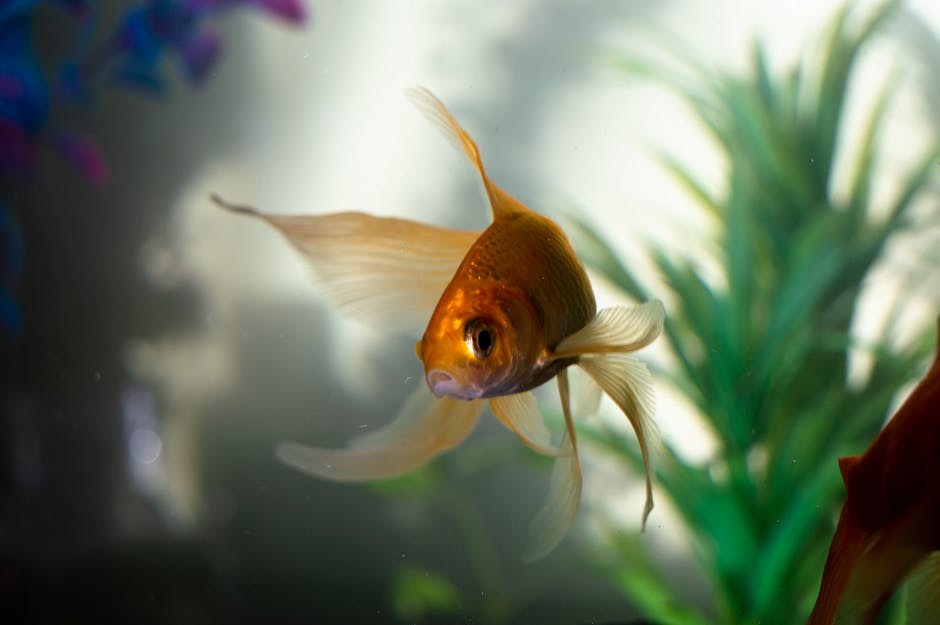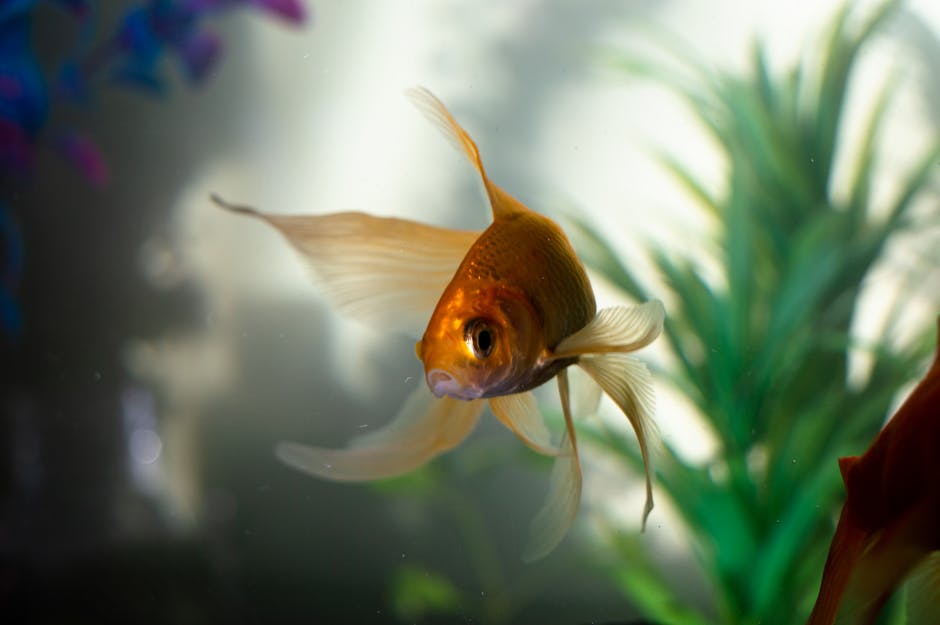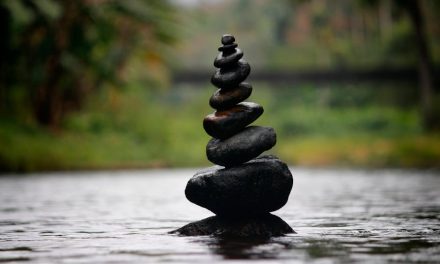Table of Contents
- Introduction
- Reflecting on Past Mistakes
- Embracing Failure as a Learning Opportunity
- Developing a Growth Mindset
- Setting Realistic Expectations
- Seeking Feedback and Guidance
- Practicing Self-Compassion
- Learning from Role Models and Mentors
- Building Resilience and Persistence
- Applying Lessons Learned to Future Endeavors
- Q&A
- Conclusion
“Embrace growth through learning from mistakes, don’t just swim in circles like a goldfish.”
Introduction
Introduction:
Learning from Mistakes: Why Being a Goldfish Isn’t the Answer
Mistakes are an inevitable part of life. While it may be tempting to forget about them and move on, truly learning from our mistakes can lead to personal growth and development. In this article, we will explore why being a goldfish – with a short memory and no reflection on past errors – is not the answer to overcoming mistakes. Instead, we will discuss the importance of acknowledging, analyzing, and learning from our mistakes in order to become better individuals.
Reflecting on Past Mistakes
Reflecting on past mistakes is a crucial part of personal growth and development. It allows us to learn from our experiences, make better decisions in the future, and ultimately become better versions of ourselves. However, some people have adopted the mindset of a goldfish when it comes to their mistakes – they quickly forget about them and move on without taking the time to reflect and learn. In this article, we will explore why being a goldfish isn’t the answer when it comes to learning from mistakes.
One of the main reasons why reflecting on past mistakes is so important is that it helps us identify patterns in our behavior. By taking the time to think about why we made a certain mistake and what led us to that point, we can start to see recurring themes or triggers that may be contributing to our errors. This self-awareness is crucial for personal growth, as it allows us to make changes in our behavior and avoid making the same mistakes in the future.
Another benefit of reflecting on past mistakes is that it helps us develop resilience. When we take the time to acknowledge our errors and learn from them, we become better equipped to handle challenges and setbacks in the future. By understanding that mistakes are a natural part of the learning process, we can approach them with a more positive mindset and bounce back more quickly when things go wrong.
Furthermore, reflecting on past mistakes can help us build stronger relationships with others. When we take responsibility for our errors and make an effort to learn from them, we show others that we are willing to grow and improve. This can help to build trust and respect in our relationships, as people are more likely to forgive and support us when they see that we are actively working on becoming better versions of ourselves.
On the other hand, adopting the mindset of a goldfish when it comes to mistakes can have negative consequences. By quickly forgetting about our errors and moving on without reflection, we miss out on valuable opportunities for growth and learning. We may continue to make the same mistakes over and over again, leading to frustration and a lack of progress in our personal and professional lives.
In addition, failing to reflect on past mistakes can also damage our relationships with others. When we refuse to acknowledge our errors or take responsibility for them, we may come across as arrogant or unwilling to change. This can lead to strained relationships and a lack of trust from those around us.
In conclusion, reflecting on past mistakes is an essential part of personal growth and development. By taking the time to learn from our errors, we can identify patterns in our behavior, develop resilience, and build stronger relationships with others. While it may be tempting to adopt the mindset of a goldfish and quickly forget about our mistakes, doing so can have negative consequences in the long run. Instead, we should embrace our errors as opportunities for growth and strive to become better versions of ourselves with each passing day.
Embracing Failure as a Learning Opportunity
Failure is an inevitable part of life. Whether it’s in our personal relationships, our careers, or our hobbies, we all make mistakes from time to time. However, how we choose to respond to those mistakes can make all the difference in our growth and development. In recent years, there has been a growing emphasis on the importance of embracing failure as a learning opportunity. Instead of shying away from our mistakes or trying to forget about them, we should be actively seeking out ways to learn from them and improve ourselves.
One common piece of advice that is often given when it comes to dealing with failure is to “be like a goldfish.” Goldfish are known for their short memories, and the idea is that if we can just forget about our mistakes and move on quickly, we will be better off in the long run. While there is some merit to this idea – dwelling on our failures can be counterproductive – simply forgetting about them is not the answer. In fact, research has shown that actively reflecting on our mistakes and learning from them can lead to greater personal growth and development.
One study conducted by researchers at the University of California, Riverside found that individuals who were able to learn from their mistakes and make adjustments based on that feedback were more likely to succeed in the long run. The researchers found that those who were able to embrace failure as a learning opportunity were more resilient, more creative, and more likely to achieve their goals. This study highlights the importance of not only acknowledging our mistakes but actively seeking out ways to learn from them and improve ourselves.
So how can we go about embracing failure as a learning opportunity? One key strategy is to adopt a growth mindset. Psychologist Carol Dweck has done extensive research on the concept of mindset, and she has found that individuals who believe that their abilities can be developed through hard work and dedication are more likely to succeed in the long run. By adopting a growth mindset, we can see failure not as a reflection of our abilities but as an opportunity to learn and grow.
Another important strategy for embracing failure as a learning opportunity is to seek out feedback. Instead of viewing feedback as criticism, we should see it as a valuable tool for improvement. By actively seeking out feedback from others, we can gain new perspectives on our mistakes and learn how to avoid making the same errors in the future. This can be a challenging process, as it requires us to be open to criticism and willing to make changes based on that feedback. However, the benefits of seeking out feedback far outweigh the discomfort that may come with it.
In conclusion, embracing failure as a learning opportunity is essential for personal growth and development. Instead of trying to forget about our mistakes or pretending they never happened, we should be actively seeking out ways to learn from them and improve ourselves. By adopting a growth mindset and seeking out feedback, we can turn our failures into valuable learning experiences that will ultimately help us succeed in the long run. Being a goldfish may be easy, but it’s not the answer when it comes to personal growth and development.
Developing a Growth Mindset
Mistakes are an inevitable part of life. Whether big or small, we all make them at some point. However, how we choose to respond to our mistakes can make all the difference in our personal and professional growth. In recent years, the concept of having a growth mindset has gained popularity as a way to approach challenges and setbacks with resilience and a willingness to learn. This mindset is in stark contrast to having a fixed mindset, where individuals believe that their abilities and intelligence are static and cannot be changed.
One common analogy used to illustrate the difference between a growth mindset and a fixed mindset is that of a goldfish versus a human. Goldfish are often said to have a memory span of only a few seconds, meaning that they quickly forget any mistakes they make. In contrast, humans have the ability to reflect on their mistakes, learn from them, and make changes to improve in the future. While it may be tempting to adopt the mindset of a goldfish and simply move on from our mistakes without dwelling on them, this approach ultimately hinders our growth and development.
Research has shown that individuals with a growth mindset are more likely to persevere in the face of challenges and setbacks. They view mistakes as opportunities for learning and growth, rather than as failures that define their abilities. By embracing a growth mindset, individuals are able to see setbacks as temporary and believe that with effort and perseverance, they can improve and overcome obstacles.
One key aspect of developing a growth mindset is the ability to accept and learn from criticism. Instead of viewing criticism as a personal attack, individuals with a growth mindset see it as valuable feedback that can help them improve. By being open to feedback and willing to make changes based on it, individuals can continue to grow and develop their skills.
In addition to accepting criticism, individuals with a growth mindset also take ownership of their mistakes. Rather than making excuses or blaming others, they acknowledge their role in the mistake and take steps to rectify it. This sense of accountability not only fosters personal growth but also builds trust and credibility with others.
Another important aspect of developing a growth mindset is the ability to embrace challenges. Instead of shying away from difficult tasks for fear of failure, individuals with a growth mindset see challenges as opportunities to learn and grow. By pushing themselves outside of their comfort zones and taking on new challenges, individuals can continue to develop their skills and abilities.
In conclusion, while it may be tempting to adopt the mindset of a goldfish and quickly forget our mistakes, this approach ultimately hinders our growth and development. By embracing a growth mindset, individuals can learn from their mistakes, accept criticism, take ownership of their actions, and embrace challenges as opportunities for growth. Developing a growth mindset takes time and effort, but the benefits of increased resilience, perseverance, and personal growth make it a worthwhile endeavor. So, the next time you make a mistake, remember that being a goldfish isn’t the answer – embrace your growth mindset and use the experience as an opportunity to learn and improve.
Setting Realistic Expectations

Learning from Mistakes: Why Being a Goldfish Isn’t the Answer
Setting realistic expectations is a crucial aspect of personal growth and development. It is important to acknowledge that mistakes are a natural part of the learning process and that we can gain valuable insights from them. However, some people adopt the mindset of a goldfish, constantly forgetting their mistakes and repeating them over and over again. In this article, we will explore why being a goldfish is not the answer and how setting realistic expectations can lead to personal growth and success.
One of the main reasons why being a goldfish is detrimental to personal growth is that it prevents us from learning from our mistakes. When we constantly forget about our past errors, we are unable to reflect on them and make changes to our behavior. This can lead to a cycle of repeated mistakes and missed opportunities for growth. By setting realistic expectations for ourselves, we can acknowledge our mistakes, learn from them, and make positive changes in our lives.
Setting realistic expectations also helps us to avoid feelings of disappointment and frustration. When we set unrealistic goals for ourselves, we are setting ourselves up for failure. This can lead to feelings of inadequacy and self-doubt, which can be detrimental to our mental health and well-being. By setting achievable goals and expectations, we can build confidence in our abilities and celebrate our successes, no matter how small they may seem.
Another benefit of setting realistic expectations is that it allows us to focus on the process rather than the outcome. When we are constantly striving for perfection, we can become fixated on the end result and overlook the journey that got us there. By setting realistic goals, we can focus on the steps we need to take to achieve them and enjoy the process of growth and self-improvement.
In addition, setting realistic expectations can help us to develop resilience and perseverance. When we face setbacks and challenges, it can be easy to give up and lose motivation. However, by setting achievable goals and expectations, we can build resilience and learn to overcome obstacles with determination and perseverance. This can help us to develop a growth mindset and approach challenges with a positive attitude.
It is important to remember that setting realistic expectations does not mean settling for mediocrity. It simply means being honest with ourselves about our abilities and limitations and setting goals that are challenging yet achievable. By setting realistic expectations, we can push ourselves to grow and improve while also acknowledging our humanity and embracing our imperfections.
In conclusion, setting realistic expectations is essential for personal growth and development. By acknowledging our mistakes, learning from them, and setting achievable goals, we can build confidence, resilience, and perseverance. Being a goldfish may seem appealing in the short term, but in the long run, it is much more beneficial to approach life with a realistic mindset. By setting realistic expectations, we can embrace our imperfections, celebrate our successes, and continue to grow and evolve as individuals.
Seeking Feedback and Guidance
Mistakes are an inevitable part of life. Whether big or small, we all make them at some point. However, what sets successful individuals apart is their ability to learn from their mistakes and grow from them. In today’s fast-paced world, where instant gratification is the norm, it can be tempting to brush off our mistakes and move on quickly. But this approach can be detrimental in the long run.
One common piece of advice that is often given is to “be like a goldfish” and forget about your mistakes quickly. While it’s true that dwelling on past mistakes can be counterproductive, completely ignoring them is not the answer either. Instead, it’s important to reflect on what went wrong, understand why it happened, and take steps to prevent it from happening again in the future.
Seeking feedback and guidance from others is a crucial part of this process. Oftentimes, we are too close to a situation to see it objectively. By seeking input from others, we can gain valuable insights and perspectives that we may not have considered on our own. This feedback can help us identify patterns in our behavior or decision-making that may be contributing to our mistakes.
It’s important to seek feedback from a variety of sources, including colleagues, mentors, and friends. Each person may offer a different perspective or point out something that others may have missed. By gathering a range of feedback, we can gain a more comprehensive understanding of the situation and how we can improve.
When seeking feedback, it’s important to approach the conversation with an open mind and a willingness to listen. It can be difficult to hear criticism, especially when it’s directed at something we’ve done wrong. However, it’s important to remember that feedback is not a personal attack but rather an opportunity for growth and improvement.
In addition to seeking feedback from others, it’s also important to take the time to reflect on our mistakes on our own. This self-reflection can help us identify our own blind spots and areas for improvement. By taking the time to analyze what went wrong and why, we can develop a deeper understanding of ourselves and our actions.
One effective way to facilitate this self-reflection is through journaling. By writing down our thoughts and feelings about a mistake, we can gain clarity and insight into the situation. Journaling can also help us track our progress over time and see how we have grown and improved from past mistakes.
Ultimately, learning from our mistakes is a continuous process that requires patience, humility, and a willingness to change. It’s important to remember that no one is perfect, and everyone makes mistakes from time to time. What sets successful individuals apart is their ability to acknowledge their mistakes, learn from them, and use them as opportunities for growth and improvement.
In conclusion, being like a goldfish and forgetting about our mistakes is not the answer. Instead, we should embrace our mistakes as learning opportunities and seek feedback and guidance from others to help us grow and improve. By taking the time to reflect on our mistakes, both on our own and with the help of others, we can develop a deeper understanding of ourselves and our actions. Learning from our mistakes is a lifelong journey, but one that is essential for personal and professional growth.
Practicing Self-Compassion
Mistakes are an inevitable part of life. We all make them, whether big or small, and they can often leave us feeling frustrated, embarrassed, or even defeated. However, it’s important to remember that making mistakes is a natural part of the learning process. In fact, research has shown that making mistakes can actually help us learn and grow. So, instead of beating ourselves up over our mistakes, it’s important to practice self-compassion and learn from them.
One common misconception is that we should strive to be like a goldfish – with a short memory that allows us to quickly forget our mistakes and move on. While it’s true that dwelling on our mistakes can be counterproductive, completely ignoring them is not the answer either. By acknowledging our mistakes and taking the time to reflect on them, we can gain valuable insights that can help us avoid making the same mistakes in the future.
Self-compassion plays a crucial role in this process. Instead of being overly critical of ourselves when we make a mistake, self-compassion involves treating ourselves with kindness and understanding. Research has shown that self-compassion can help us bounce back from setbacks, improve our self-esteem, and even boost our motivation to try again.
One way to practice self-compassion is to adopt a growth mindset. This involves viewing mistakes as opportunities for growth and learning, rather than as failures. By reframing our perspective on mistakes in this way, we can shift our focus from self-criticism to self-improvement. This can help us build resilience and develop a more positive attitude towards challenges.
Another important aspect of self-compassion is being mindful of our thoughts and emotions. When we make a mistake, it’s common to experience feelings of shame, guilt, or self-doubt. However, instead of getting caught up in these negative emotions, it’s important to acknowledge them and then let them go. Mindfulness techniques, such as deep breathing or meditation, can help us stay present and calm in the face of mistakes.
It’s also important to remember that we are not defined by our mistakes. Making a mistake does not make us a failure or a bad person. It simply means that we are human and imperfect. By practicing self-compassion, we can learn to accept our mistakes as a natural part of life and move forward with a sense of resilience and determination.
In conclusion, learning from mistakes is an essential part of personal growth and development. Instead of trying to forget our mistakes like a goldfish, it’s important to practice self-compassion and use them as opportunities for learning and self-improvement. By adopting a growth mindset, being mindful of our thoughts and emotions, and treating ourselves with kindness and understanding, we can navigate through life’s challenges with grace and resilience. Remember, it’s okay to make mistakes – what matters is how we choose to respond to them.
Learning from Role Models and Mentors
Learning from Mistakes: Why Being a Goldfish Isn’t the Answer
In the journey of personal and professional growth, one of the most valuable resources we have is the wisdom and experience of those who have come before us. Role models and mentors play a crucial role in guiding us through challenges, helping us learn from our mistakes, and ultimately shaping us into better versions of ourselves. While it may be tempting to adopt the “just keep swimming” mentality of a goldfish and forget about past failures, the truth is that reflecting on our mistakes and seeking guidance from others can lead to greater success in the long run.
One of the key benefits of having role models and mentors is the opportunity to learn from their mistakes. By sharing their own experiences, they can help us avoid making the same errors and pitfalls that they encountered in their own journeys. This can save us time, energy, and resources that would otherwise be wasted on trial and error. As the saying goes, “smart people learn from their mistakes, but wise people learn from the mistakes of others.”
Furthermore, role models and mentors can provide valuable insights and perspectives that we may not have considered on our own. Their guidance can help us see situations from different angles, challenge our assumptions, and broaden our horizons. By opening ourselves up to their feedback and advice, we can gain a deeper understanding of ourselves and the world around us.
Another important aspect of learning from role models and mentors is the opportunity to receive constructive criticism. While it may be uncomfortable to hear feedback about our shortcomings, it is essential for growth and improvement. Constructive criticism can help us identify areas for development, set goals for improvement, and ultimately become better versions of ourselves. As the saying goes, “iron sharpens iron,” and by surrounding ourselves with people who challenge us to be better, we can reach new heights of success.
In addition to learning from their mistakes and receiving constructive criticism, role models and mentors can also serve as sources of inspiration and motivation. By observing their achievements and successes, we can be inspired to set higher goals for ourselves and strive for excellence in all that we do. Their stories of perseverance, resilience, and determination can serve as reminders that success is possible with hard work and dedication.
Moreover, role models and mentors can provide us with valuable networking opportunities and connections that can open doors to new opportunities and collaborations. By building strong relationships with those who have achieved success in their respective fields, we can expand our own networks, gain access to new resources, and accelerate our own growth and development.
In conclusion, learning from mistakes is an essential part of personal and professional growth, and having role models and mentors can greatly enhance this process. By seeking guidance from those who have walked the path before us, we can learn from their mistakes, gain valuable insights and perspectives, receive constructive criticism, find inspiration and motivation, and build valuable connections. While it may be tempting to adopt the “just keep swimming” mentality of a goldfish and forget about past failures, the truth is that reflecting on our mistakes and seeking guidance from others can lead to greater success in the long run. As we continue on our journey of growth and development, let us remember the value of learning from those who have come before us and strive to become the best versions of ourselves.
Building Resilience and Persistence
Mistakes are an inevitable part of life. Whether big or small, we all make them at some point. However, it’s how we respond to these mistakes that truly defines our character. Some people have a tendency to dwell on their mistakes, letting them consume their thoughts and hinder their progress. On the other hand, there are those who seem to brush off their mistakes with ease, almost as if they have the memory of a goldfish. But is this really the best approach to take?
Research has shown that being able to learn from our mistakes is a key component of building resilience and persistence. When we acknowledge our mistakes and take the time to reflect on what went wrong, we are better equipped to make improvements and avoid making the same mistakes in the future. This process of self-reflection not only helps us grow and develop as individuals but also builds our resilience in the face of adversity.
In contrast, adopting the mindset of a goldfish and forgetting about our mistakes may seem like a quick fix, but it ultimately hinders our ability to learn and grow. By ignoring our mistakes, we miss out on valuable opportunities for self-improvement and personal development. Instead of facing our mistakes head-on, we choose to sweep them under the rug, only to have them resurface later on.
Furthermore, constantly forgetting about our mistakes can lead to a lack of accountability and responsibility. When we fail to acknowledge our mistakes, we fail to take ownership of our actions and their consequences. This can create a cycle of repeated mistakes and missed opportunities for growth.
So, how can we learn from our mistakes and build resilience and persistence in the face of adversity? One key strategy is to practice self-compassion. Instead of beating ourselves up over our mistakes, we should treat ourselves with kindness and understanding. By acknowledging that we are only human and that mistakes are a natural part of the learning process, we can approach our mistakes with a sense of curiosity and openness.
Another important strategy is to seek feedback from others. By asking for input from trusted friends, family members, or colleagues, we can gain valuable insights into our mistakes and how we can improve. Constructive feedback can help us see our mistakes from a different perspective and provide us with new ideas for moving forward.
In addition, setting realistic goals and expectations for ourselves can help us build resilience and persistence. By breaking down our goals into smaller, more manageable tasks, we can avoid feeling overwhelmed by the prospect of failure. This approach allows us to celebrate small victories along the way and stay motivated even in the face of setbacks.
In conclusion, learning from our mistakes is a crucial part of building resilience and persistence. While it may be tempting to adopt the mindset of a goldfish and forget about our mistakes, this approach ultimately hinders our growth and development. By acknowledging our mistakes, practicing self-compassion, seeking feedback from others, and setting realistic goals, we can learn from our mistakes and become more resilient in the face of adversity. Remember, it’s okay to make mistakes – it’s how we respond to them that truly matters.
Applying Lessons Learned to Future Endeavors
In the pursuit of success, it is inevitable that mistakes will be made along the way. While it can be tempting to brush off these missteps and move on without giving them a second thought, there is much to be gained from taking the time to reflect on what went wrong and how to avoid making the same mistakes in the future. This process of learning from mistakes is crucial for personal growth and development, as it allows individuals to gain valuable insights that can be applied to future endeavors.
One common piece of advice that is often given when it comes to dealing with mistakes is to “be like a goldfish” and forget about them as quickly as possible. While this may seem like a simple and effective way to move on from a setback, it is not necessarily the best approach when it comes to learning from mistakes. By simply forgetting about what went wrong, individuals miss out on the opportunity to analyze the situation, identify the root causes of the mistake, and come up with strategies to prevent it from happening again in the future.
Instead of adopting a “goldfish” mentality, it is important to take a more proactive approach to learning from mistakes. This involves taking the time to reflect on what went wrong, asking yourself tough questions about your role in the mistake, and being open to feedback from others. By engaging in this process of self-reflection and self-assessment, individuals can gain a deeper understanding of their own strengths and weaknesses, as well as the factors that may have contributed to the mistake.
One key aspect of learning from mistakes is being able to identify patterns and trends in your behavior that may be leading to repeated errors. By recognizing these patterns, individuals can take steps to break the cycle and make positive changes in their approach to future endeavors. This may involve seeking out additional training or education, changing your approach to problem-solving, or seeking out the advice of a mentor or coach.
Another important aspect of learning from mistakes is being able to accept responsibility for your actions and the role you played in the mistake. It can be easy to blame external factors or other people for a mistake, but true growth and development come from taking ownership of your actions and learning from them. By acknowledging your role in the mistake, you can begin to make changes in your behavior and decision-making processes that will help you avoid similar errors in the future.
In conclusion, learning from mistakes is a crucial part of personal growth and development. By taking the time to reflect on what went wrong, identifying patterns in your behavior, and accepting responsibility for your actions, you can gain valuable insights that will help you avoid making the same mistakes in the future. While it may be tempting to simply forget about a mistake and move on, taking a proactive approach to learning from mistakes is essential for long-term success. So, next time you find yourself facing a setback, remember that being a goldfish isn’t the answer – instead, embrace the opportunity to learn and grow from your mistakes.
Q&A
1. Why is being a goldfish not the answer to learning from mistakes?
Because being a goldfish means forgetting mistakes quickly without learning from them.
2. How can we effectively learn from our mistakes?
By reflecting on what went wrong, understanding the root cause, and making changes to avoid repeating the same mistake.
3. What are the benefits of learning from mistakes?
It helps us grow, improve, and become more resilient.
4. How can fear of failure hinder our ability to learn from mistakes?
It can prevent us from taking risks and trying new things, which are essential for growth and learning.
5. What role does self-awareness play in learning from mistakes?
Self-awareness allows us to recognize our mistakes, take responsibility for them, and make changes to improve.
6. How can seeking feedback from others help us learn from mistakes?
Feedback from others can provide different perspectives and insights that we may not have considered on our own.
7. Why is it important to have a growth mindset when learning from mistakes?
A growth mindset allows us to see mistakes as opportunities for learning and growth, rather than as failures.
8. How can setting goals help us learn from mistakes?
Setting goals gives us direction and motivation to learn from our mistakes and make improvements.
9. What are some strategies for effectively learning from mistakes?
Some strategies include reflecting on the mistake, seeking feedback, making a plan to avoid repeating the mistake, and being open to learning and growth.
Conclusion
Learning from mistakes is crucial for personal growth and development. Being able to reflect on past errors and make changes for the future is essential for success. While it may be tempting to forget about mistakes and move on quickly, taking the time to learn from them can lead to better outcomes in the long run. Being a goldfish and forgetting about past mistakes is not the answer; instead, we should embrace our errors and use them as opportunities for growth.





